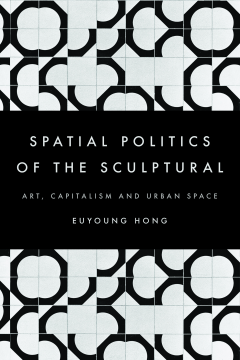
Additional Information
Book Details
Abstract
Space is a formative factor in the production of sculpture. Phenomenological thought interprets sculptural work in relation to the immersive experience of the viewer, situating it within its environment. But what possibilities lie beyond this unitary position? What is the political potential of a sculptural object? How can its spatial relations and movements be reconfigured beyond its immediate environment?
Spatial Politics of the Sculptural investigates the concept of space and its role in the production of the sculptural form from a multidimensional perspective. Engaging with the work of Krauss, Fried, Merleau-Pony, Deleuze and Guattari, and using case studies of urban development in Paris, New York and Seoul it reinterprets and dislocates the sculptural form in terms of the political dynamism of space proposing a new methodology for reading, producing and expanding sculptural practice. Drawing on David Harvey’s theory of capital, it scrutinizes the idea of the spatial in the process of urbanization. It examines the interrelationship between capital flow and accumulation, and explores the production and destruction of space in relation to the creation of three-dimensional works of art. In doing so, it expands the idea of the sculptural object in relation to the urban environment.
Spanning from Henri Lefebvre's critique of capitalist urbanism to the post-1970s redevelopment of Seoul, and a sample of major projects for art in urban spaces since then, this book offers a useful extension of the literature on art's function in, and potential challenge to, urban change today. It will be of relevance equally to debates in the West as to those in East Asia.
Malcolm Miles, Professor of Cultural Theory, Plymouth University
Euyoung Hong is a Lecturer at Ewha Womans University, Seoul.
